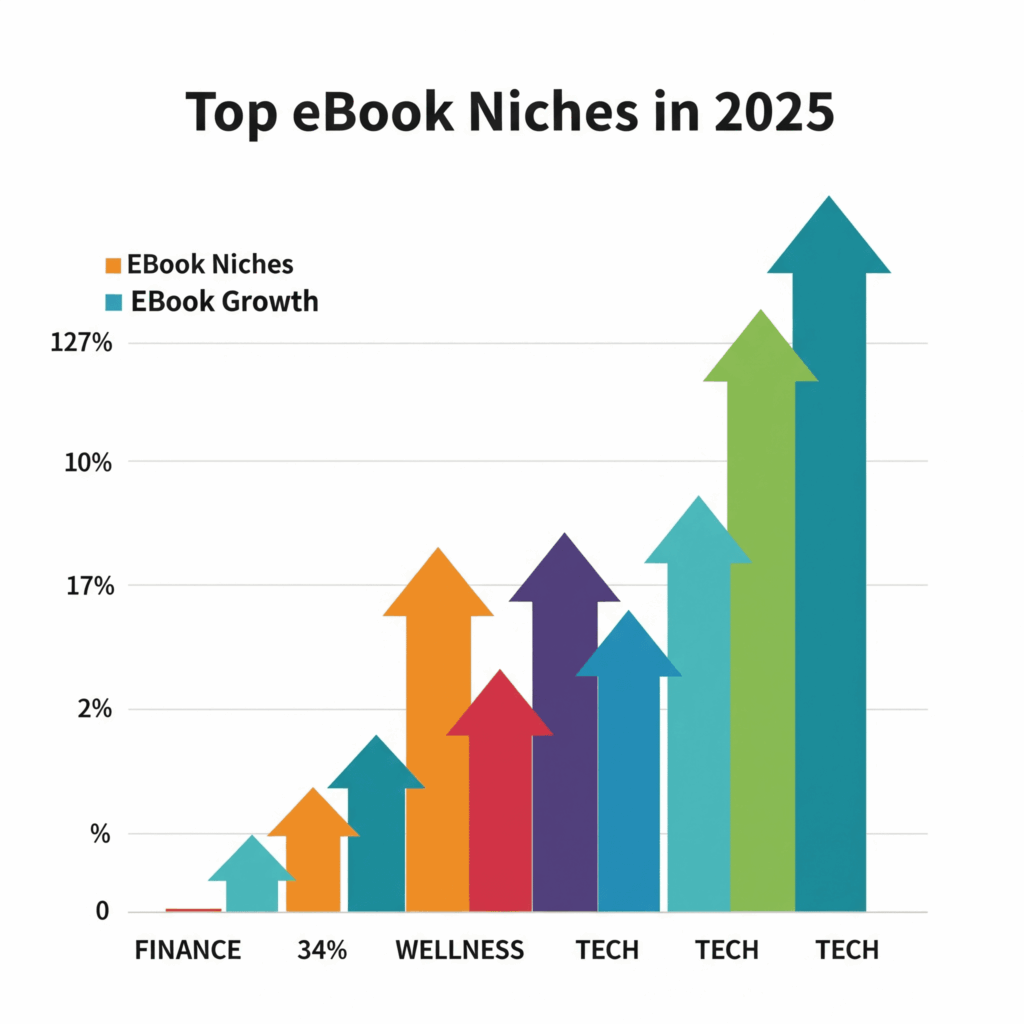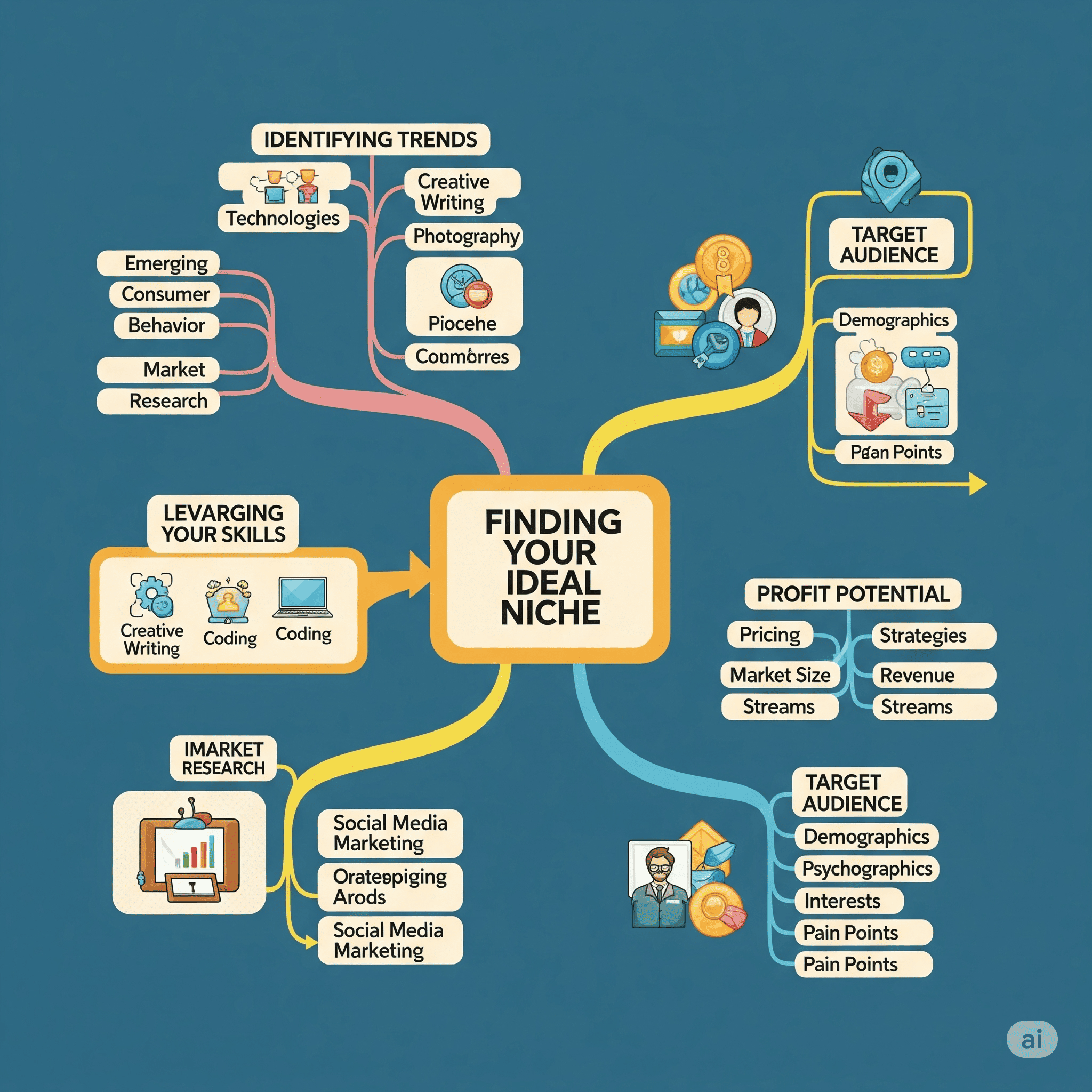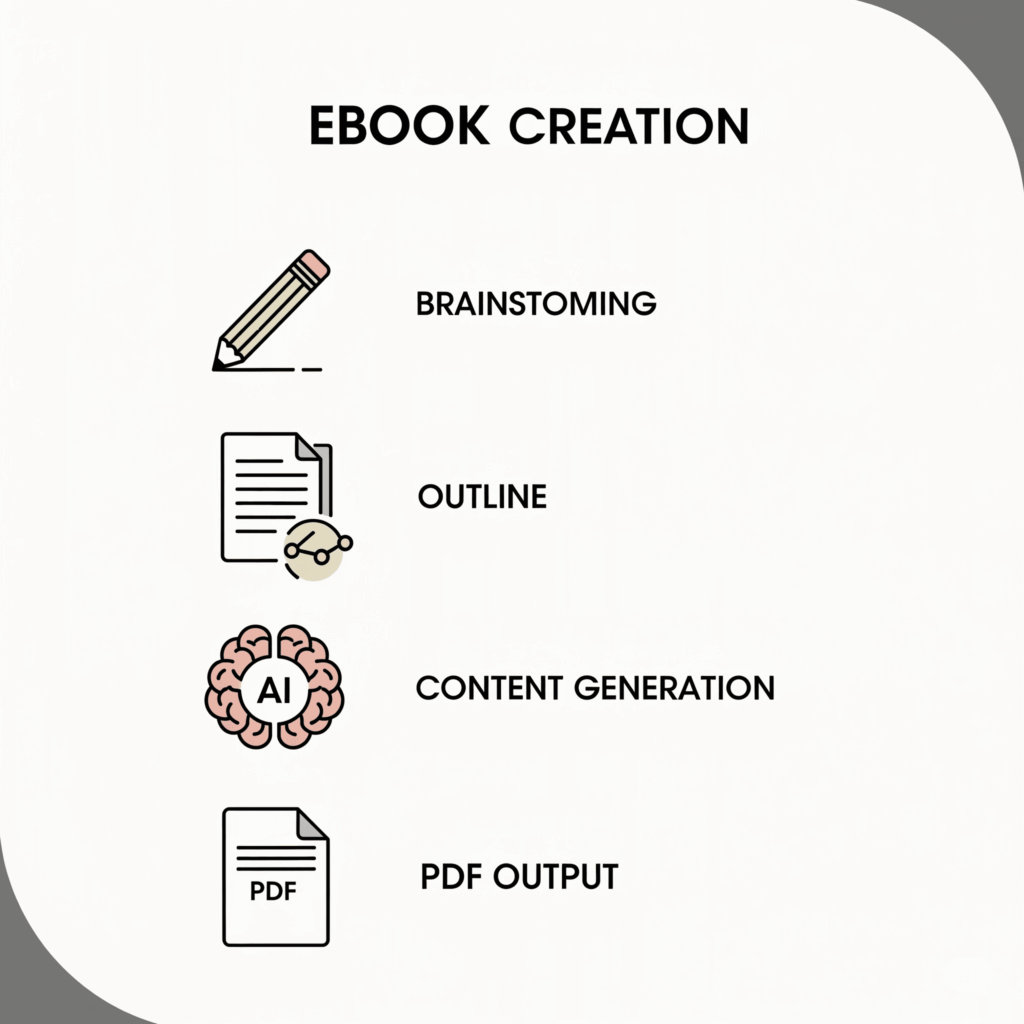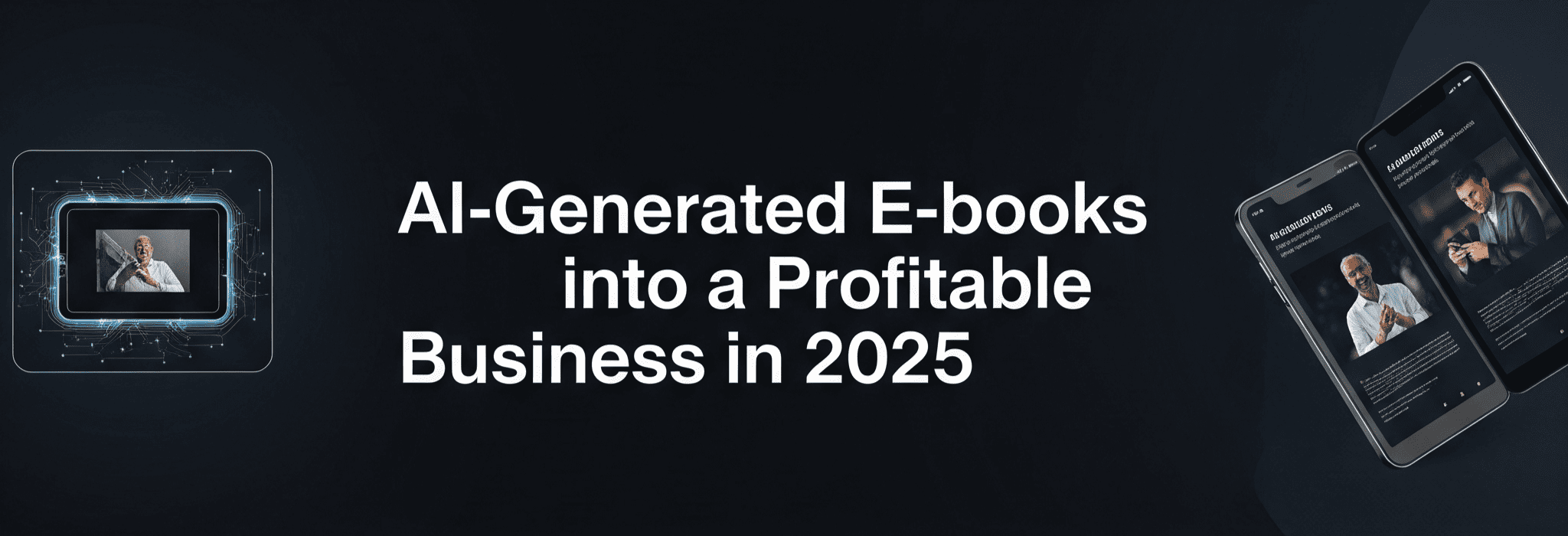Meta Description: Discover how to turn AI-generated e-books into a profitable business in 2025 with practical tips and monetization strategies.
If you think the e-book market is saturated, get ready to change your mind. In 2025, artificial intelligence has not only revolutionized how we write but also how we profit from digital content. The combination of AI and scalable business models is opening opportunities that just a few years ago seemed impossible.
In this article, you’ll learn how to transform AI-generated e-books into a profitable business, even if you’ve never written a line before. We’ll explore tools, ideas, publishing methods, and marketing strategies that are working right now. All in simple, engaging language that keeps you hooked until the very end. Ready to unlock your digital income?

Contents
- 1 AI-Generated E-books: The Future of Digital Publishing
- 2 Choosing the Right Niche for AI-Generated E-books
- 3 Essential Tools to Create AI-Generated E-books in 2025
- 4 How to Write an E-book Quickly and with Quality Using AI
- 5 How to Register and Professionalize Your E-books
- 6 Turning E-books into a Scalable Business
- 7 Where to Sell AI-Generated E-books in 2025
- 8 How to Promote Your E-books and Sell Every Day
- 9 Conclusion: What Was Once a Dream Is Now a Real Opportunity
- 10 🔑 Key Takeaways
AI-Generated E-books: The Future of Digital Publishing
Thanks to tools like ChatGPT, Claude, Gemini, and others, creating an AI-generated e-book is no longer a complex process. Today, you can write an entire book in just a few hours with solid structure, smooth language, and quality content.
Platforms like ChatGPT allow you to create niche-focused e-books targeting high-demand topics such as:
- Personal development
- Finance
- Health and wellness
- Career and productivity
- Spirituality
- Technology

The key is to combine well-structured content with attractive design and an effective distribution strategy.
Choosing the Right Niche for AI-Generated E-books
Before you start writing anything, the first step to building a profitable business with e-books is picking the right niche. And this goes way beyond just “liking the topic.”
Ideally, find the intersection of:
- What’s trending (Google Trends, Amazon, TikTok insights)
- What you know or are interested in
- Niches with monetization potential (related products, courses, coaching, affiliate marketing)
For example, an e-book about passive income with AI can attract readers who later buy your course, subscribe to your newsletter, or hire your consulting.
Choosing a specific theme is crucial: the more focused, the better. Instead of “personal finance,” consider “finance for freelancers” or “how to get out of debt using AI.” This segmentation boosts your authority and makes communication with your audience easier.

Essential Tools to Create AI-Generated E-books in 2025
Having ChatGPT is great, but to build a professional e-book, you’ll need some complementary tools. Here are the top ones:
- ChatGPT or Claude: for generating structured, coherent content.
- Canva Pro or Visme: to create high-level visual layouts.
- Grammarly or LanguageTool: for spelling and grammar checks.
- Designrr or Beacon: to convert texts into beautiful, responsive PDFs.
- Google Docs: great for collaborative editing and organizing texts.
- Amazon Kindle Direct Publishing (KDP): to sell your e-book on the world’s largest marketplace.
- Hotmart or Monetizze: to sell as an independent digital product.
These tools often have free or affordable versions and together form the perfect ecosystem to launch your first product.

How to Write an E-book Quickly and with Quality Using AI
Here’s a straightforward, practical step-by-step to generate your e-book with AI:
- Define your title, subtitles, and target audience
- Ask the AI to generate the introduction based on these elements
- Break the book into 5 to 7 chapters with a logical flow
- Generate the text for each chapter, adjusting the language for your audience
- Review with AI help or tools like Grammarly
- Design the layout using Canva or Google Docs
- Export as PDF or EPUB for publishing
Remember to add your personal touch: opinions, experiences, or analogies make a big difference in perceived value.

How to Register and Professionalize Your E-books
If you want to operate professionally, consider copyright registration and obtaining an ISBN (International Standard Book Number).
- Copyright registration protects your legal rights.
- ISBN is essential for distribution on platforms like Amazon, Kobo, and digital libraries.
In many countries, including Brazil, you can register ISBNs via the local book chamber and copyright with national libraries. This step boosts credibility and opens partnership opportunities.
Turning E-books into a Scalable Business
Creating an e-book is just the first step. Now it’s time to turn that product into a profitable, scalable business. Here are some models:
- Free e-books to capture leads (and sell something later)
- Thematic e-book bundles for resale
- Monthly subscription for exclusive e-books
- Content licensing to other creators
- Selling on marketplaces like KDP, Hotmart, Etsy, and Payhip
- Paid upgrades: buy the e-book and get discounts on the full course
Over time, you can build a product pipeline in the same niche, exploring cross-selling and up-selling. Also, building a segmented email list creates sources of recurring income.
Where to Sell AI-Generated E-books in 2025
There are many platforms to sell your e-books, each with advantages. The main ones:
- Amazon KDP: global reach and customer trust
- Hotmart / Monetizze: integrates with affiliates and launches
- Payhip / Gumroad: direct sales with quick checkout
- Your own website with Stripe or WooCommerce checkout
- TikTok, Instagram, and YouTube Shorts: for free, organic traffic
Uploading on KDP involves creating an account, adding files, inserting a cover, setting title, description, category, keywords, and pricing. It’s simple but requires attention to detail.
How to Promote Your E-books and Sell Every Day
A great e-book doesn’t sell itself — marketing is key. Here are the best 2025 strategies:
- Short videos on TikTok and Reels showcasing snippets
- SEO on blogs and social media to rank on Google
- Pinterest for passive traffic
- Affiliate partnerships to scale sales
- Lead magnets + email marketing to build loyal audiences
- Targeted paid ads with compelling landing pages
The trick is to create curiosity, value, and urgency. Use social proof, testimonials, and powerful excerpts to convince readers they need your e-book.
Conclusion: What Was Once a Dream Is Now a Real Opportunity
Turning AI-generated e-books into a profitable business is no longer a distant idea. With the right tools, a solid niche strategy, and marketing dedication, you can build a real pipeline of digital products with great return potential.
Start small. Create an e-book, test a niche, make your first $100. Then reinvest, refine your process, and multiply results. This model’s scalability is real, especially for long-term thinkers.
The future of digital business lies in smart automation. Few models are as accessible, profitable, and quick to launch as AI e-books. Take advantage of this window while it’s still fresh. In a few years, this will be commonplace. Today, it’s your edge.
🔑 Key Takeaways
- AI makes writing easier, but human review is essential.
- Visual presentation impacts perceived quality.
- Distribution via Amazon KDP offers broad reach; having an ISBN adds professionalism.
- Investing in marketing is critical to actually sell.




